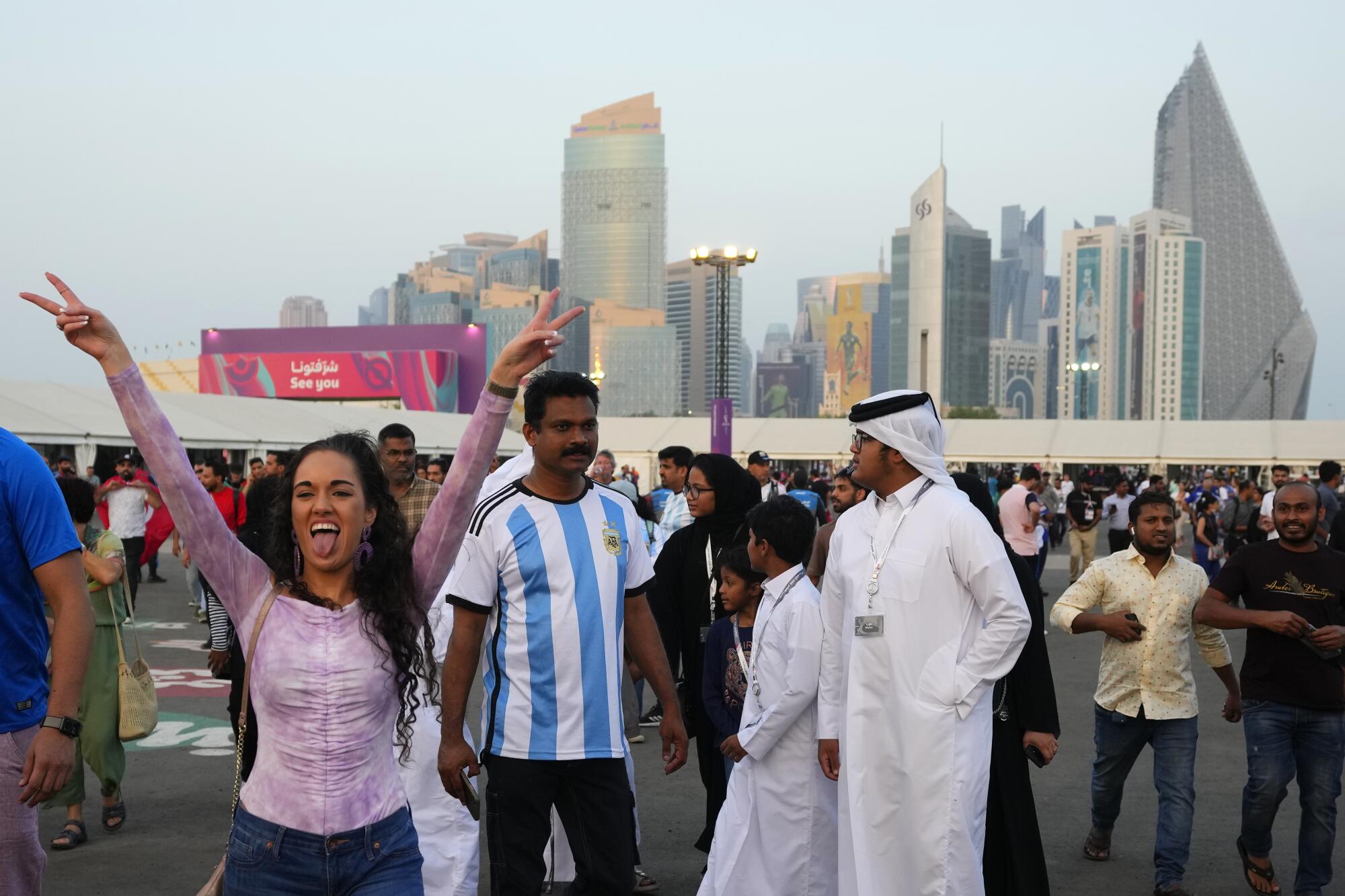
The calm before the storm is over. Now comes the deluge.
After years of anticipation and more than $200 billion in infrastructure spending, the 2022 World Cup will kick off in Qatar on Sunday. Over the following 28 days, more than 1.2 million people will flood the conservative Gulf state, which is smaller than Connecticut and has a population of about 2.9 million, three-fourths that of Los Angeles.
And there’s more than a little concern that flood will overwhelm a country that has had 12 years to prepare and still doesn’t appear ready.
“Qataris themselves are quite apprehensive about what’s coming,” said Michael Quentin Morton, an English author and historian who grew up in Qatar, Bahrain and Abu Dhabi. “They [only] have to turn the television on and see what can happen at these big football tournaments to be concerned.”
The latest reaction to that apprehension came Friday when Qatari officials demanded FIFA ban beer sales at the eight World Cup stadiums, ending a long and delicate back-and-forth between the government and global soccer’s ruling body.
The sale of alcohol, which is tightly controlled in Qatar, had been approved for select areas at stadiums and designated fan fests. The abrupt decision to renege on that agreement two days before the start of the tournament and limit sales to the fan fests caught many people off guard and suggested the royal family must have been involved.
It’s highly unlikely such a drastic move could have been made without the involvement of the popular emir, Sheikh Tamim bin Hamad Al Thani, or his brother, who has been active in planning the tournament. And it’s another salvo in a long-building cultural war between the country and its World Cup guests, who Qataris fear will pay little heed to their customs and traditions.
“We’re expecting people to respect our culture, the same thing that we do when we travel to foreign countries,” said Ibrahim Alemadi, 24, who recently opened a Mexican restaurant in sight of a World Cup stadium. “Imagine I’m coming to your house and I’m roaming around, doing whatever I want. But you have a policy in your house, you’re not comfortable with somebody doing this.
“Just respect our country. You can do whatever you want, but respect our culture.”
That is a sentiment repeated by many here.
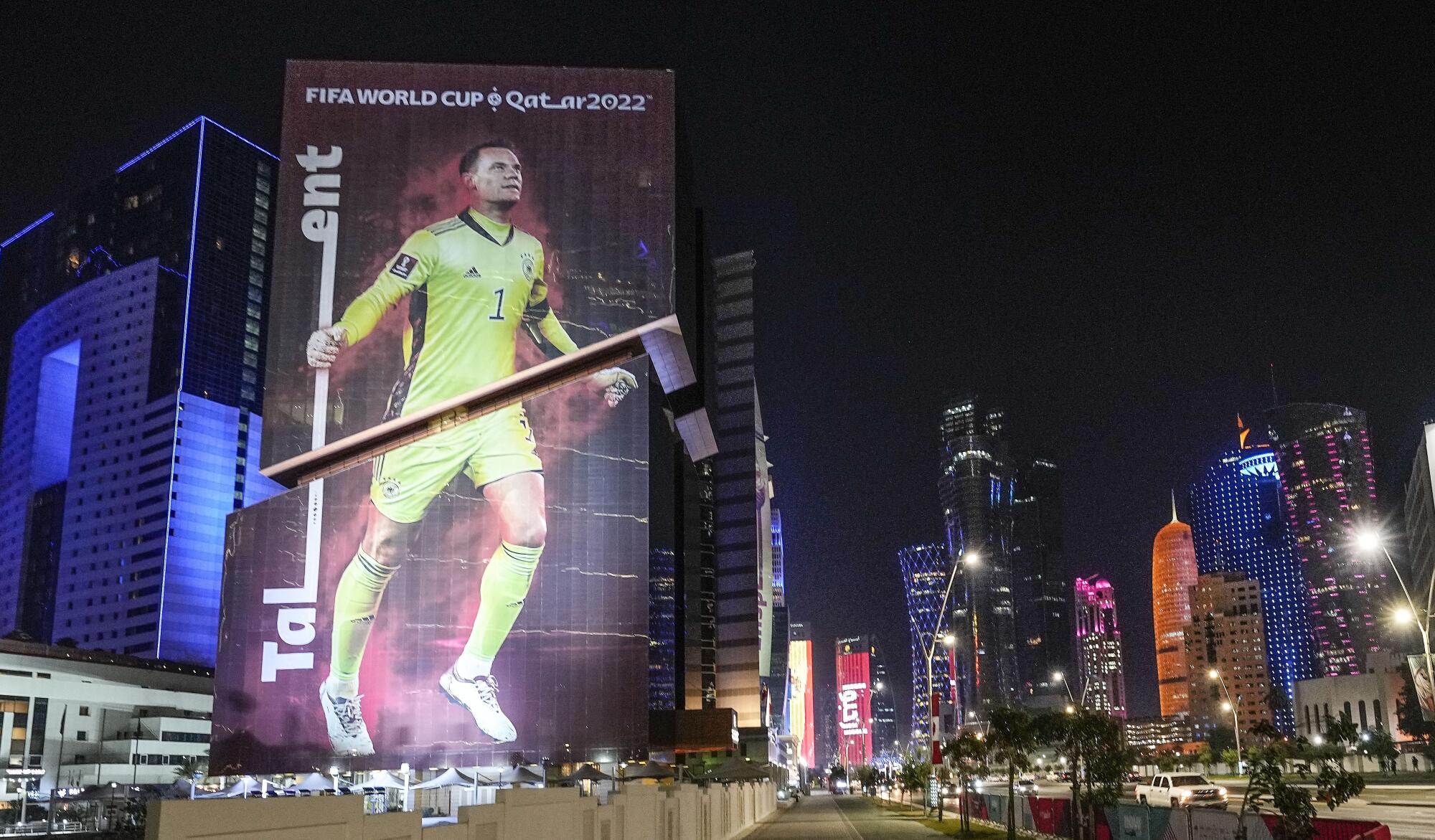
“Fundamentally this is sort of like a PR campaign. It’s really not going to change anything in Qatar.”
— James Gelvin, UCLA professor of history and expert on the modern Middle East
“A lot of fans are coming with a very white-washed mentality that anything that they do is simply the right thing and anything that goes against that is backwards,” said a local journalist who did not have permission from her publisher to give her name. “Culture is culture, and it should be respected anywhere you go.”
But then asking the world to come over and have a look around has always been a major gamble for Qatar. The country is heavily influenced by Sharia law, and homosexuality and public drunkenness are forbidden, while public displays of affection and immodest dress are heavily frowned upon.
Since winning its bid for the World Cup, Qatar has also drawn widespread condemnation for its treatment of migrant laborers under the country’s kafala system, a kind of legal form of indentured servitude in which poorly paid workers have few rights. That international pressure led Qatar to reform the kafala system and increase the minimum wage to $275 a month, but that’s only about $1.56 an hour in a country where the average annual per capita income for citizens is $130,000.
As the World Cup has neared, the government has begun aggressively pushing back on the criticism, which the emir called “fabrications and double standards.”
Last week, a Danish TV crew was in the middle of a live shot near Doha Bay when three men rode up in an electric cart and threatened to break the camera. “You invited the whole world to come here, why can’t we film?” reporter Rasmus Tantholdt protested in English.
Denmark’s soccer federation has been one of the more fervent critics of Qatar’s record on human rights and treatment of migrant workers. The Supreme Committee for Delivery & Legacy, the local organizing committee, later apologized to the journalists.
That tension between welcoming visitors while monitoring their behavior may be one reason there was little tangible buzz on the soon-to-be snarled streets of the capital as the World Cup approached. Although flags of the 32 participating countries flapped in the warm desert breeze before strip malls and office buildings and La’eeb, the child-like tournament mascot who looks like Casper the Friendly Ghost, was omnipresent on banners, T-shirts and department store displays, the hype felt forced.
“It is a risk, obviously,” said Morton, the English historian. “They are inviting elements from abroad to come to their country. Their standard line is you have to respect our customs. But, of course, the customs of the people coming in are quite different to those of Qataris and how they’re going to manage that I’m not entirely sure.”
It is as if the country is bracing for a siege, not a celebration. And it isn’t prepared for either.
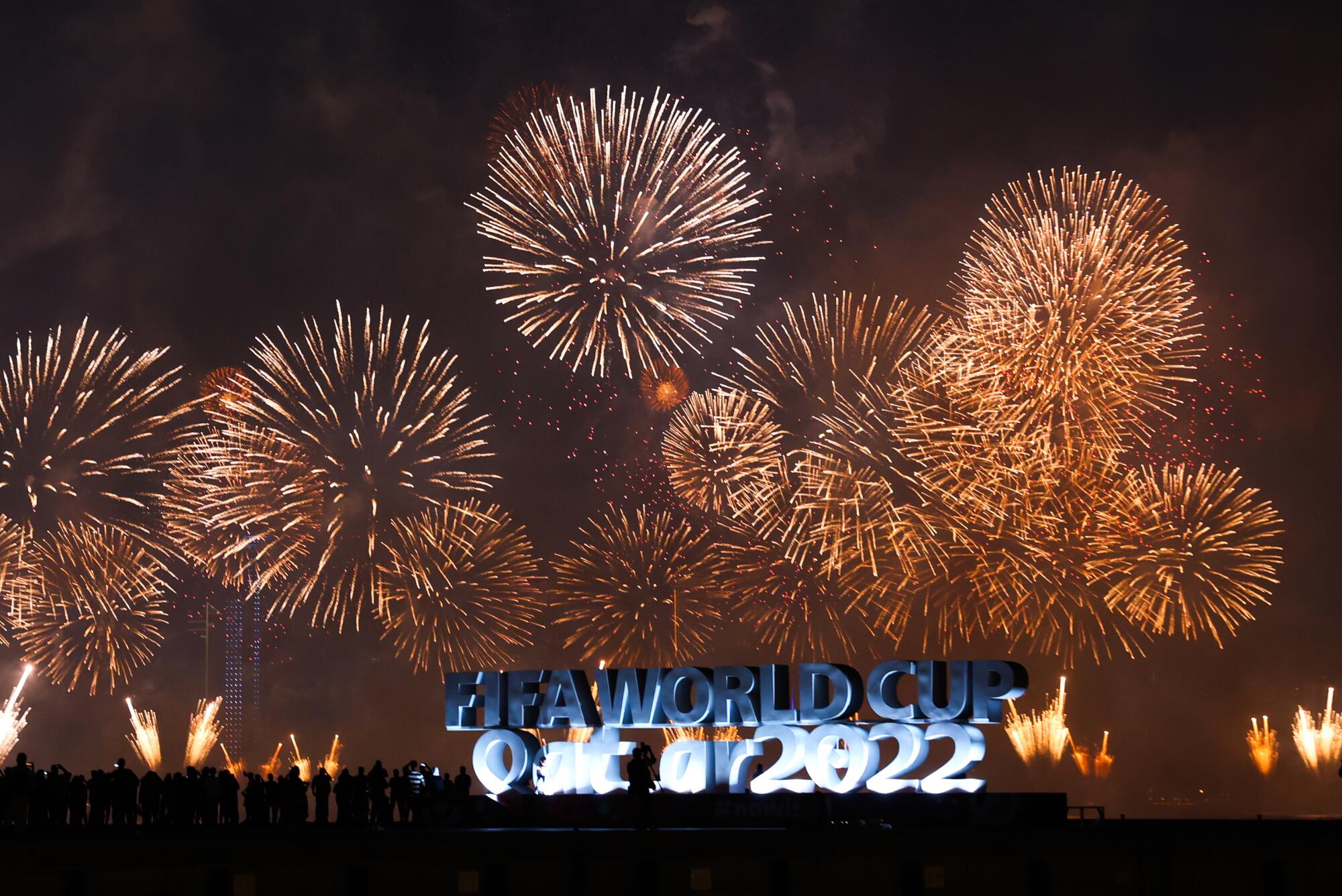
Although Ashghal, Qatar’s public works authority, said last week that all projects related to the tournament have been completed, workers along the Corniche, Doha’s bayside pedestrian promenade and site of a massive fan fest, weren’t expected to be finished with their final preparations until less than 24 hours before the first game.
The crush of visitors in a city with just more than 30,000 hotel rooms has led to some creative attempts to provide sufficient housing, including the temporary use of two cruise ships, the addition of 160 daily shuttle flights from neighboring countries and even desert campsites. Yet on the eve of the tournament, there was fear those measures would fall woefully short.
Three weeks ago, municipal officials swept through more than a dozen apartment buildings in Doha’s Al Mansoura district, evicting 1,200 foreign workers, many of whom were given just two hours to leave their homes. Government authorities said the evictions were unrelated to the World Cup, but apartments in the neighborhood were listed on websites designed to help visiting fans find accommodations.
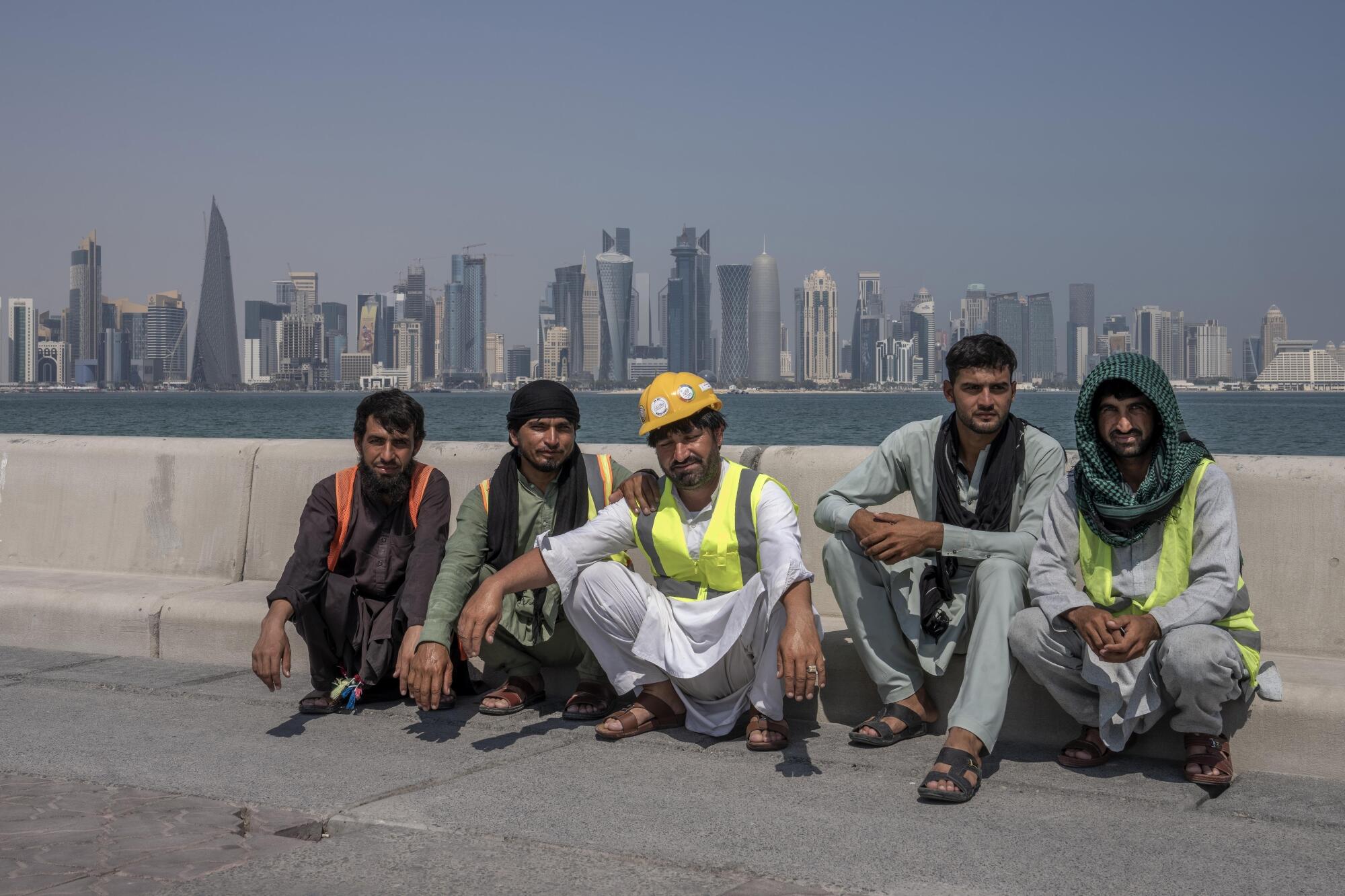
Qatar, the first Arab and first Muslim-majority country to stage a World Cup or Olympics, is also the smallest country to do so, and Doha’s wide boulevards are expected to be so clogged with traffic, private cars will be banned from many streets, residents near some stadiums will need permits to get to their homes and many companies have implemented a work-from-home policy during the tournament.
Even Sepp Blatter, the disgraced former FIFA president who presided over the vote that awarded the tournament to the country in 2010, now says it was a mistake.
“It’s too small a country. Football and the World Cup are too big for that,” he told Swiss outlet Tages-Anzeiger this month.
In Doha, such comments on the streets or in the city’s massive shopping malls are met with either defiance or a shrug. Fatma Al-Nuaimi, the executive public services director of the Supreme Committee, said educating foreigners, especially Westerners, about the region’s culture and traditions was the main reason Qatar bid for the World Cup in the first place.
“When it comes to the Middle East, like in the news, always there is a misperception of this part of the world, the Arab world, the Muslim world,” she said. “It’s always in the connotation of negative association.
“When you come here, having firsthand experience, it’s totally different. It gives you a different perspective.”
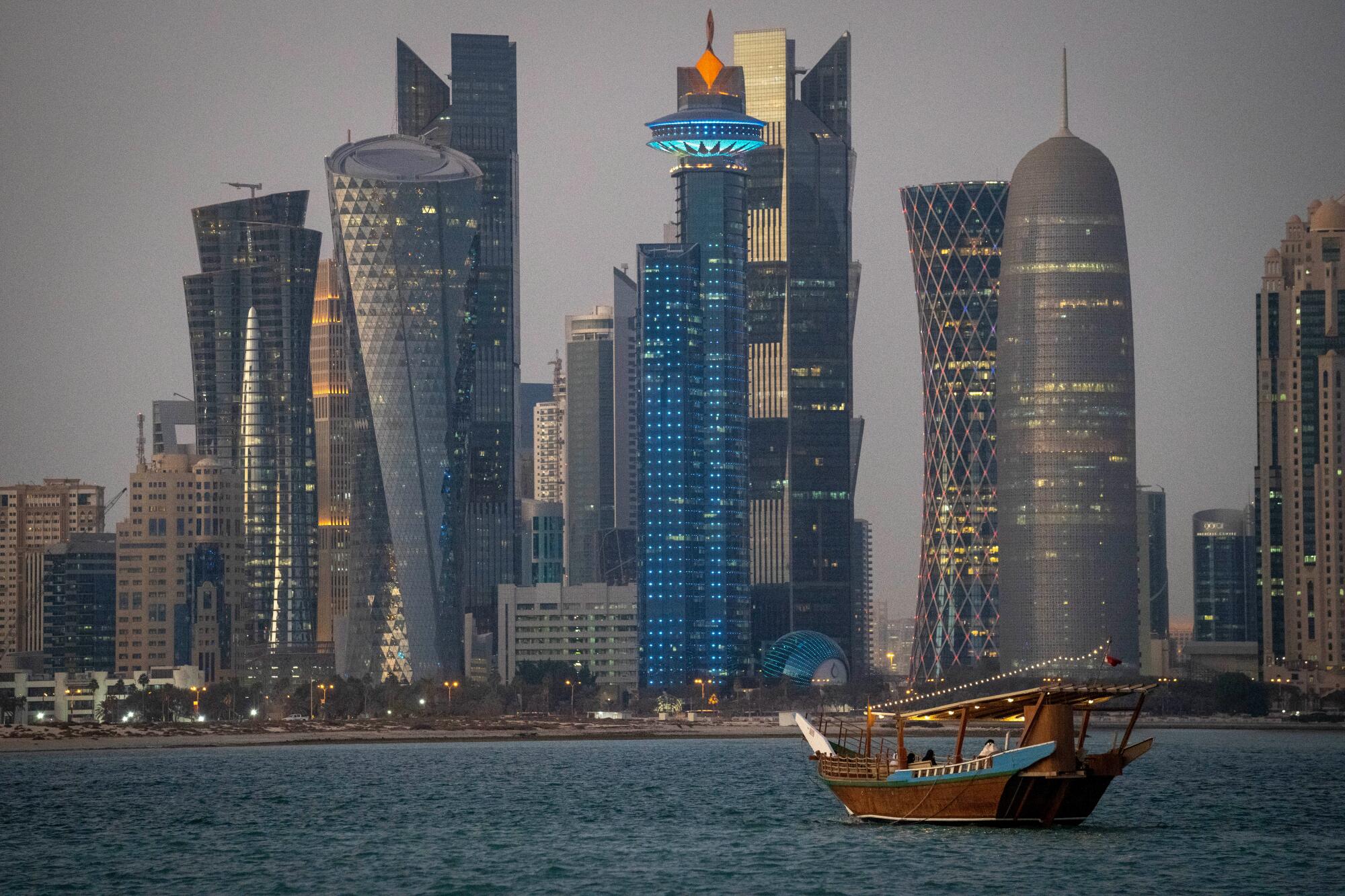
“Qataris believe that such ‘word of mouth’ advertising will last longer and be more credible than what appears in the global media.”
— Edward A. Lynch, professor of political science at Hollins University in Roanoke, Va.
That’s why Qatar has hosted more than 600 international sporting events, from the world track championships and a Formula One Grand Prix to international bowling, squash, table tennis and equestrian events, in the last decade. That has spiked tourism and hurried along infrastructure spending on highway and light-rail construction and expansion of Hamad International Airport.
The World Cup will top them all in size, prestige and international attention, with FIFA estimating 5 billion viewers, roughly two-thirds of the world’s people, will watch at least part of the tournament on TV. The hope in Qatar is that the exposure will change hearts, minds and open wallets, helping turn the energy-rich country, which didn’t gain independence until 1971, into a global center for education, the arts and tourism.
“Fundamentally this is sort of like a PR campaign,” James Gelvin, a UCLA professor of history and expert on the social, cultural and political history of the modern Middle East, said of the World Cup. “It’s really not going to change anything in Qatar.”
The U.S. men failed to qualify for the 2018 World Cup, prompting a rebuild of the team and its philosophy. Will it pay off at the Qatar World Cup?
So far, that battle for hearts and minds has settled into a tense truce, with some early-arriving fans ignoring local custom regarding dress and behavior while Qatar banned beer inside the stadiums. At best, observers say, that will only qualify as a draw.
If the world still looks at the tiny emirate and thinks only of sand, camels and oil after the World Cup, allowing that crude stereotype to live on, the time and treasure Qatar expended on the tournament will not have been worth it. Victory for the Qataris, said Edward A. Lynch, professor of political science at Hollins University in Roanoke, Va., will require something more.
“Success will mean the majority of visitors coming away with a positive view of Qatar, of its people, of Doha,” said Lynch, author of “Isolating Qatar.” “Qataris believe that such ‘word of mouth’ advertising will last longer and be more credible than what appears in the global media.”









